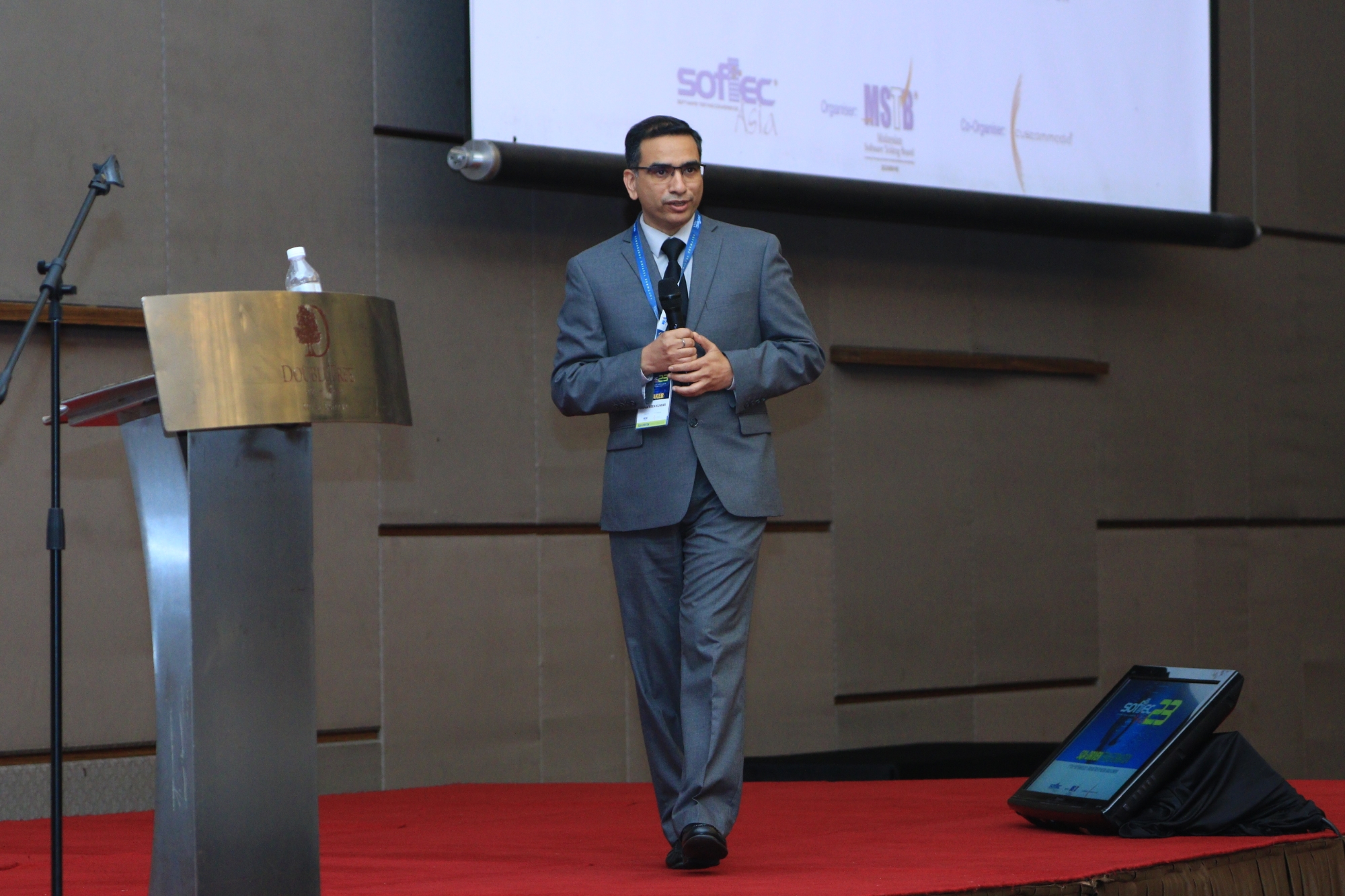In September, Naveen Kumar, Associate Professor of Management Information Systems in the Price College of Business, spoke on the impact of large language models (LLMs) within the software testing industry at the SOFTECAsia 2023 conference in Malaysia.
Kumar was invited to deliver one of the keynotes and present two workshops at the conference, which was attended by about 300 software development and testing leaders and professionals. The primary aim of the conference was to facilitate a profound understanding of evolving industry trends in software testing in Asia.
In the context of software development and testing, LLMs represent a transformative power, holding great potential to revolutionize testing procedures by enhancing their efficiency, accuracy, and speed. Through his keynote address, Kumar provided attendees with a comprehensive overview of the topic, offering insights into current industry trends and inspiring software testing experts to promote innovation by harnessing the capabilities of LLMs.
“The potential of LLMs in the software testing industry piqued the curiosity of both attendees and organizers alike,” said Kumar, who worked for almost a decade as a data science researcher at Intel Corporation before joining academia. “The attendees displayed a big appetite for deeper knowledge about LLMs and a keen interest in the cutting-edge language model research underway at the Price College of Business at the University of Oklahoma. Undoubtedly, the interest from industry experts and academia in this subject is huge.”
Kumar conducted two workshops, helping attendees navigate the realms of ChatGPT and AI applications in software testing. He emphasized that LLMs are poised to elevate the role and relevance of software testers in the evolving landscape. As these models can introduce more subtle defects into systems, testers must stay current with the technical developments in LLMs, creatively use them in their work, and not let defects slip into the systems.
LLMs also hold the potential to amplify the productivity of software developers and testers by providing base code and test cases, alleviating the need to commence projects from scratch.
“Companies that embrace this transformation will undoubtedly lead from the front in the competitive landscape,” Kumar said. “On the contrary, those resisting change might end up in a situation where the world has moved on without them.”
Looking forward, Kumar's research trajectory encompasses a deep exploration of how AI and LLMs could make a further impact in solving complex business problems. He is delving into several complex issues, such as bias and fairness in AI systems, and what implications these issues may bring on society. Furthermore, he is pursuing research on the application of LLMs in mitigating disruptions within the defense supply chain.
“The excitement lies in how these large language models will reshape future industry practices and decision-making processes,” Kumar said. “With Generative AI and other technologies advancing at an unprecedented pace, our commitment to stay at the forefront of these innovations is paramount.”


